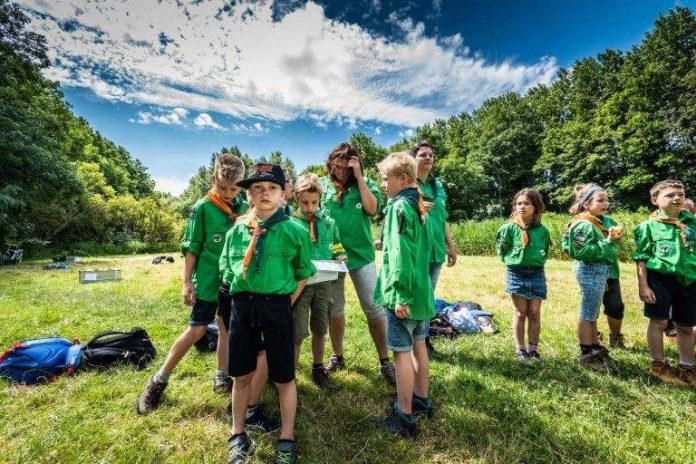With 2022 designated the European Year of Youth, the role young people play in shaping a better future is in focus. Scouting, one of the world’s largest youth movements, is leading the way with its commitment towards achieving the Sustainable Development Goals (SDGs) with its spirit of volunteerism and solidarity.
Creating a better world
Young people’s lives and aspirations have been upended by the Covid-19 pandemic, which has impacted education, jobs, and mental well-being. The European Year of Youth seeks to put young people in the spotlight and engage them in building a better future that is greener, more inclusive, and digital.
“The European Year of Youth represents a real opportunity for all young Europeans to participate at EU, national, regional and local level and become key agents of change in society,” says Michele Turzi of the World Organization of the Scout Movement.
Counting over 50 million members worldwide, including more than 1.7 million in the European region, the Scout movement is enabling young people to create positive change. It plans to make the world’s largest coordinated youth contribution to achieving the SDGs by 2030, including by working towards ending poverty, reducing inequalities, and inspiring action to combat climate change.
“The SDGs adopted by the United Nations cannot be achieved without the contribution of young people and Scouting’s mission is to educate them to help build a better world,” adds Michele Turzi.
Two billion hours of community service towards sustainable development have already been completed, the Scout movement says, marking the halfway point in its commitment to contribute four billion hours by 2030.
Learning by doing

From as young as six, boys and girls can join local Scout groups to play games, make friends and learn important values.
“The key values of a Scout are respect for others, for oneself and for the environment, as well as solidarity and mutual help,” says Morgane Van Hemelryck, a 24-year-old Scout leader from the Lillois-Witterzee Scouting group in Wallonia, Belgium.
“For me, these values are independence, commitment, friendship and charity,” adds 21-year-old Rhode Demuynck, leader of the Gullegem-Moorsele Scout group in Flanders.
Such values are in line with several of the SDGs, and many of the activities of the Scouts are centred around these goals.
In Greece, for example, Scouts are given tips on how they can implement the SDGs in their daily lives, such as by asking for a donation to charity instead of a gift on their birthday to achieve Goal 1: No poverty; or by not letting their tap run when brushing their teeth for Goal 6: Clean Water and Sanitation.
The Scouts have also set up the online platform ‘Scouts for SDGs’, where Scouts from all over the world can inspire others by presenting their projects carried out within the framework of the SDGs.
Respect for nature and the environment
Respecting the environment and protecting the planet is an essential part of being a Scout, in line with the SDGs linked to climate. Scout members organise most of their activities outdoors, playing games and camping in tents.
“One of our rules is to always leave campsites as we found them. The idea is to live in nature without damaging or destroying it,” says Vicky Pundelthe National Federation of Boy and Girl Scouts of Luxembourg. “We believe it is very important to allow children to have deep contact with nature so that they learn to respect it,” she adds.

For local groups, this means organising vegetarian and zero-waste camps, forest clean-ups and planting trees. Daily actions include sorting and recycling waste, buying local products, as well switching off the lights and heating when leaving a building.
At the global level, a quality mark (called SCENES) has been developed for Scout campsites that are in a natural environment, are managed sustainably and offer activities on sustainability and nature to the campers. In the Netherlands, which has five such camps, the Scout group in Borger in the Dutch province of Drenthe tries to organise clean-ups that are also fun.
“There was a selfie contest to see who took the funniest, craziest or most beautiful group selfie during the cleaning action,” says Borger Scout leader Sophie van Rossem.
Everyone is welcome
Inclusion is also a fundamental principle of Scouting. Membership prices to join a Scout group are kept low and support exists for those in difficult financial situations.
“Everyone is welcome in Scouting, regardless of origin, gender, sexual preference or disability. In conversations with youth members, we hear that one of the most important values for them is that everyone can participate and that you can be yourself,” says Fedde Boersma, Director at Scouting Netherlands. Activities are organised around themes such as children in poverty, LGBTIQ+ rights and living with disabilities.
“Cooking together at camp or sleeping in a tent also promotes unity and community life, as well as conviviality and respect for different opinions,” says Luc Krier, leader of the Scout group Les Piwitschen in Luxembourg.
Global solidarity
Scouting not only brings young people together at local or national levels, but also internationally.
Tens of thousands of young members from countries across the world meet every four years at the World Scout Jamboree. Held in a different location each time, the 10-day educational event promotes peace and understanding, as well as friendship.
A JotaJoti (a Jamboree on the radio and internet) is also held each October and brings together more than two million Scouts from over 171 countries.
“Young people are the future of this planet,” says Luxembourg’s Vicky Pundel. “It is really important for us as Scouts to make our world a better place.”
More information:

